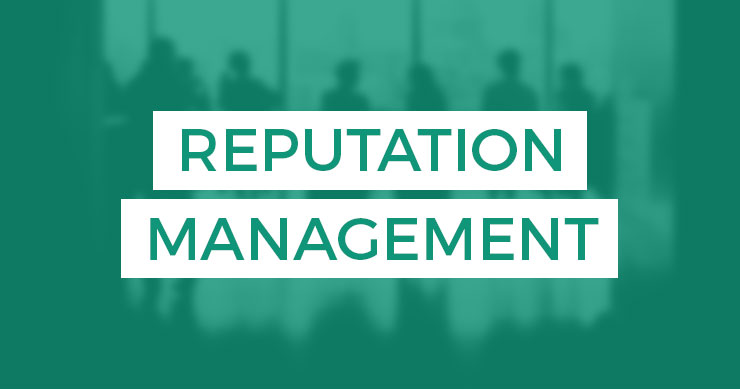
Time to talk about dead and bad things. Which is appropriate, considering I may die a bad death in a moment. I’ll keep you posted. [cough, sniffles] Up on stage we have Michael Stebbins, Roger Montti, and Michael Gray. No banter. Let’s just talk about banned Web sites. Because really, what’s more fun than banned Web sites?
Um, NOTHING!
Up first is Michael Stebbins.
Most of the time when our sites don’t show it’s because Google changed something. They tweaked the algorithm., However, we’re looking for issues where we’ve been banned, not just penalized. So…what do you do when Google bans your Web site. [Other than cry, I assume.]
Go into your Webmaster Tools and see if Google is telling you that your site is not indexed. If you don’t have a GWC account, GET ONE. In the meantime, type in [site:domain.com] in Google to find out how many pages have been indexed. If none, well, you’re in trouble and banned. If you do a search and you see just one page, you can’t say your site is banned. You can say that it’s penalized or you did something to help remove it from the index. You’re probably a goober. Don’t worry, you’re in good company.
One Reason or Many?
- Read Webmaster Guidelines
- Find all reasons & prioritize them by degree of sin.
- Likely reinclusion: If no, invest in another property.
Forgivable Sins
- Removed by a Technical Mistake: You take out your own site by bringing out a robots.txt from a test environment. Then all the files are dumped over to your main server and you’re telling the bots to avoid your pages and they’ll eventually start disappearing from the engines. Some people also have a noindex — in which case you’re instructing Google to take you out.
- Repeated Requests to Google: Not a reason for Web site removal. Typically confused with getting a service blocked to a client. That’s a myth.
- Linking to Bad Neighborhoods: Hints to Google. Imply reciprocal links and/or agreements that are not natural representation of organic links and “genuine” relevance.
- Swept up with riffraff: Sharing server IP addresses with bad sites. Find out who’s on your server (Link Vendor is a good tool for this) AND if they have bad reputation problems.
- Duplicate Content: You’re not going to get your site removed entirely because of duplicate content. It may, however, get pushed down. The first page “wins”, the rest are “less relevant”.
Mortal Sins:
- Selling Naked Links: Usually results in penalty but can result in removal. Exacerbated by other sins if caught. Can fly under the radar unless ratted out. Avoid “buy text links” or other phrases like that.
- Link Schemes: If Google detects you’re doing some type of falsification of your popularity, they may remove you. If >80 percent of the links to you are also OWNED by you, that may set something off. [Also, seriously, make new friends.] They can also tell if they all have the same AdSense IDs, Analytics IDs or Registration Info.
- Relevant Swapping: Presenting different content, links or behavior to bots with intent to rank. Things like hiding text, hiding links, hiding auto redirects or doorway pages.
To Get Relisted:
Consider your sins. If you have committed three Mortal Sins, it’s hard to get back in because it shows you know what you’re doing and you had intent to manipulate the search engines. You need to think about the effort it’s going to take to get back in.
If you’ve only committed two mortal sins, there’s a chance. You’ll have to fix the problems and prepare to confess, in detail. Submit your site for reconsideration in Webmaster Tools.
If you have multiple sites banned, don’t try to get them all reincluded at the same time. Get one cleaned up and then please your case.
Next up is Michael Gray.
Before you go through all this trouble, decide if the Web site is worth saving.
- Is the domain attached to your company name, well branded or is it a vanity level keyword?
- Are the sins you are confessing to worth more than a brand new domain?
- If you were banned for aggressive tactics can you scale back on a new domain?
- If you own more than one site does confessing expose your entire network?
Content Deciding What To Save
- Only save content that is unique and high quality
- Combine shorter articles into longer more complete articles
- Rewrite or update outdated, awkward and low quality articles
- Does the page have information or serve a purpose other than a buy button or affiliate link?
Links: What To Keep
- Use software to perform a link audit and remove or update broken links
- Check for links to malware, spyware or bad nieghborhoods
- Remove or nofllow and paid or sponosred links
- Remove any recipricoal link directories that aren’t there for users or are there to “game” the search engines.
- Do not put bad links BACK after you are reincluded
Do not squeal to the search engines about how you bough or sold links to.
Listen…Don’t Debate
Do everything that you can to fix your site before you file a recinclusion request. Do everything all at once and set your reinclusion request. Don’ try and hide. Be willing to confess ALL your sins.
[I’d like to thank my Dell for being possessed and crashing my browser. I lost about 4 slides worth of notes. I’m getting a Mac.]
Up next is Martinbuster aka Roger Montti.
False Positives
- Automated paid link algo
- Site fits the profle
False False Positives
- Usually content related
- Content to links ratio
- Excessive plagiarism
Banned Site Rehabiliation
Hand Check
- What files in the algo probably won’t in the heand check
- Stricter criteria than algo
- Site must be extra clean
- Backlinks must be impeccable
Checklist: Domain: looks-like-a-spam-site.com
Outbound links
- Reciprocal link pages
- Links to unrelated sites
- Links to poor quality site
- Links that look paid or bartered, such as outbound inks in the footer.
Links from sites that currently are not the most powerful. The most relevant pages are powerful. Good backlinks do not have to have top rankings or lots of green pixels to be effective.
Content
- Original
- Useful
- Aggregated content is not original, particularly with Yahoo. Possibly may not pass a hand check with Google.
- Aggressive on page SEO.
Inbound Links
- Excessive reciprocal links
- Blog theme backlinks
- Widget backlinks
- Paid links
- Suspicious links


